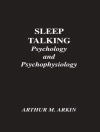This authoritative book presents a groundbreaking evidence-based approach to conducting therapy groups for persons with substance use disorders. The approach integrates cognitive-behavioral, motivational interviewing, and relapse prevention techniques, while capitalizing on the power of group processes. Clinicians are provided with a detailed intervention framework and clear-cut strategies for helping clients to set and meet their own treatment goals. More than two dozen ready-to-use reproducible assessment tools, handouts, homework exercises, and session outlines are supplied in a convenient large-size format.
Tabla de materias
I. Rationale, Research, and Assessment1. Guided Self-Change Treatment and Its Successful Extension to Group Therapy 2. Overview of Motivational Interviewing Strategies and Techniques3. Assessment: A Running Start for Treatment II. Guided Self-Change: A Motivational Cognitive-Behavioral Intervention for Individual and Group Therapy4. Guided Self-Change Treatment in an Individual Format5. Integrating Motivational Interviewing and Cognitive-Behavioral Techniques into Group Therapy III. Conducting and Managing Groups: Pregroup Planning, Group Cohesion, and Difficult Situations and Clients6. Building Group Cohesion: Music Comes from the Group 7. Managing Groups: Structural Issues 8. Managing Difficult Clients in Groups 9. The Way Ahead Appendices A. AUDIT Questionnaire B. Drug use Questionnaire (DAST-10)C. Drug Use History Questionnaire D. Brief Situational Confidence Questionnaire (BSCQ)
Sobre el autor
Linda Carter Sobell, Ph D, ABPP, is Professor and Associate Director of Clinical Training at the Center for Psychological Studies at Nova Southeastern University, where she is Codirector (with Mark B. Sobell) of the Guided Self-Change Clinic. She has collaborated with Mark B. Sobell on research and hundreds of publications focusing on brief motivational interventions, the process of self-change, and the Timeline Followback assessment method. Each is a recipient of numerous awards for their contributions to the field of addictions, including the Distinguished Scientific Contribution Award from the Society of Clinical Psychology, Division 12 of the American Psychological Association; the Charles C. Shepard Science Award from the Centers for Disease Control and Prevention and the Agency for Toxic Substances and Disease Registry; and the Lifetime Achievement Award from the Addictions Special Interest Group of the Association for Behavioral and Cognitive Therapies. Mark B. Sobell, Ph D, ABPP, is Professor at the Center for Psychological Studies at Nova Southeastern University, where he is Codirector (with Linda Carter Sobell) of the Guided Self-Change Clinic. He has collaborated with Linda Carter Sobell on research and hundreds of publications focusing on brief motivational interventions, the process of self-change, and the Timeline Followback assessment method. Each is a recipient of numerous awards for their contributions to the field of addictions, including the Distinguished Scientific Contribution Award from the Society of Clinical Psychology, Division 12 of the American Psychological Association; the Charles C. Shepard Science Award from the Centers for Disease Control and Prevention and the Agency for Toxic Substances and Disease Registry; and the Lifetime Achievement Award from the Addictions Special Interest Group of the Association for Behavioral and Cognitive Therapies.












